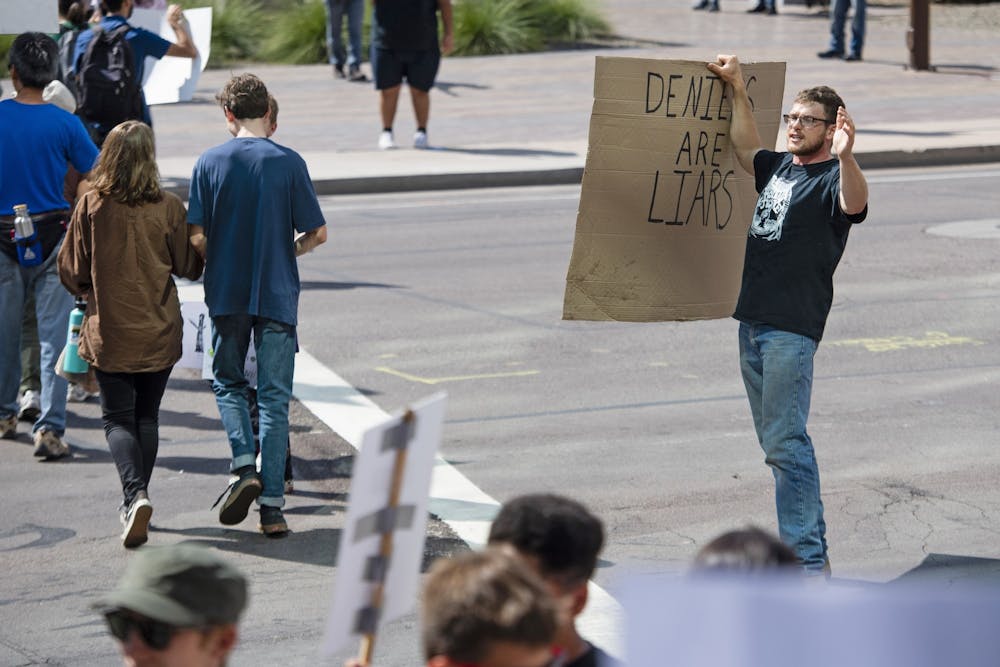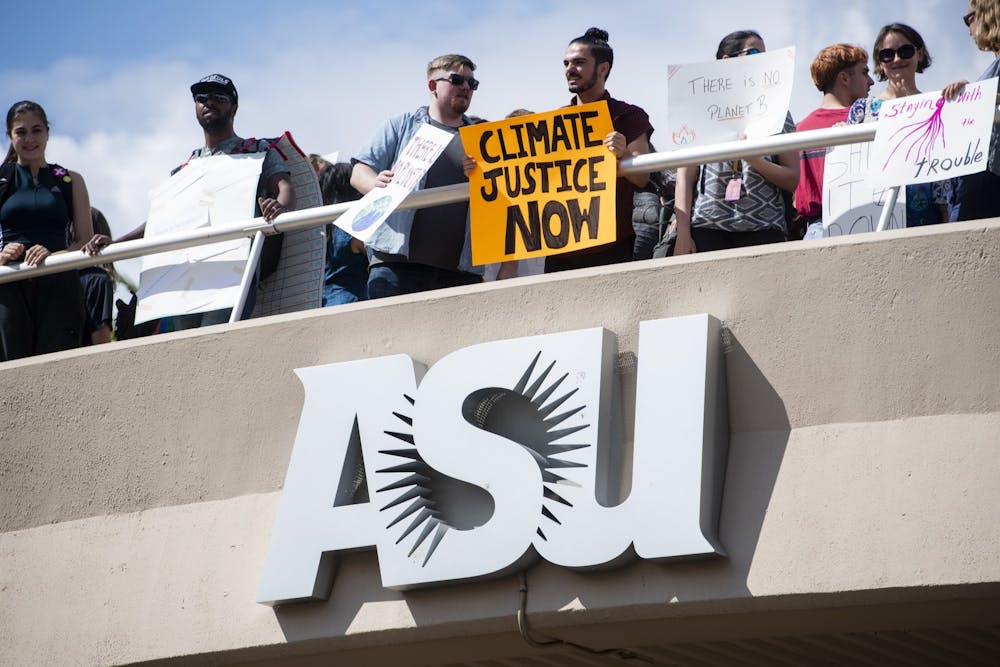Climate change is arguably the most important topic of our generation — so why is it hard to talk about?
Not long ago, I was talking to my aunt who often watches Fox News, a TV network that has regularly doubted the science behind climate change. She told me she didn’t believe the climate was changing, and as hard as I knew it would be, I had to try to understand what her denial really meant before I could convince her otherwise.
It can be painful and confusing to talk to someone who denies climate change, a crisis that is already affecting millions.
In general, there are two types of climate change skeptics. One questions what we can or should do to stop the effects of climate change, and the other doubts that climate change is a fact.
The latter can be trickier to persuade.
The poison in the well of climate change conversation is politics and identity. Well supported facts are denied because they are perceived as an attack on a cultural or political worldview.
There’s science to back this up — extensive work by Yale professor, Dan Kahan, shows that people reject scientific facts when they don’t fit with their identities.
This is clear after spending any amount of time debating climate change online (a painful activity that I strongly discourage).
I can’t count the number of Twitter debates I’ve had where the response to my tediously crafted argument presenting the science of climate change was rebuffed with a variation of “Al Gore and all the liberal celebrities made up climate change and fly their private jets."
After dozens of conversations with family members and friends who range across the spectrum of climate change belief, I've learned several tips to helping deniers and skeptics understand the issue.
Keep cool
Climate change is a life or death issue, but getting angry at someone for their ignorance or apathy won't help the conversation or change their mind.
Oftentimes people have fundamentally different intuitions about what matters to them, so passionate appeals to saving the world just won't work.
Try to stay calm and control your emotional reactions, but also listen to your counterpart.
Focus on one issue
You're talking to a skeptic about rising carbon dioxide, and out of the blue, they start criticizing something they heard about the Green New Deal.
It's common in everyday conversation to waft from topic to topic. Don't let this happen when debating climate change.
At the beginning of a conversation, define the topic and don't let it slip away, or else a conversation can be about a dozen different things that never get resolved.
Ask questions
Ask why they don't believe in climate change or ask why they think it can't be helped.
It's possible they haven't thought about it as much as they suggest, or their reasons may be based on emotions and political beliefs rather than science.
Point out that emotional arguments or political opinions aren't sufficient to address the overwhelming evidence for climate change.
Facts aren’t always enough
Facts and evidence are the bread and butter of debate about human-influenced climate change, but often they’re not enough.
As we saw from Kahan, facts can be easily denied when they conflict with an identity.
One way to break through this is to explain how their own life, children and community will be affected. For example, electricity bills will increase in Arizona as it gets hotter.
Know when to quit
It's important to know when the conversation has met its end.
After exhausting all your patience and good-will, it's not worth it to continue with a stubborn or aggressive skeptic.
Sometimes the conversation can be stuck on one point of contention, and usually, that's a good time to stop.
Celebrate small wins
After a grueling debate with my aunt, I was able to pin down how her values and identity prevented her from understanding climate change.
By taking her through the steps of the scientific proof, removing politics, focusing on the facts and how her children would be affected in the future, she said she changed her mind and believed in human-caused climate change.
I wasn't able to move her on anything else, but any progress on the millions of debates like this across the country is a win in my eyes.
Reach the reporter at cscragg@asu.edu or follow @monsoonchaser on Twitter.
Like State Press on Facebook and follow @statepress on Twitter.





